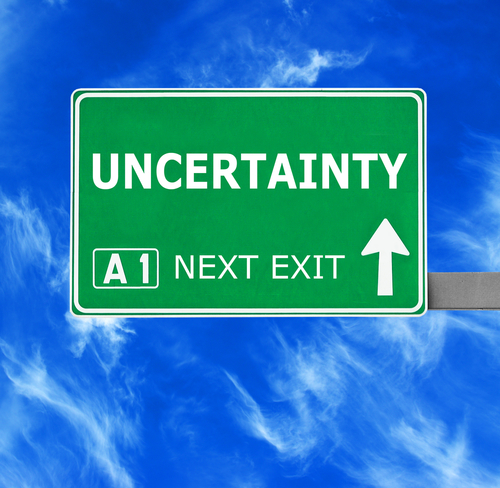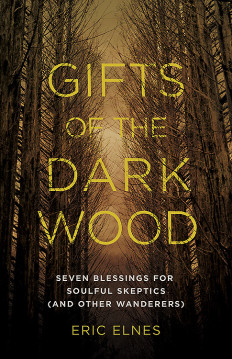 A couple of weeks ago, I wrote a blog post that was critical of Elder Ballard’s comments that Catholics “don’t know who God is. They don’t know who the Savior is; nor do they know who the Holy Ghost is.”
A couple of weeks ago, I wrote a blog post that was critical of Elder Ballard’s comments that Catholics “don’t know who God is. They don’t know who the Savior is; nor do they know who the Holy Ghost is.”
In the post, I objected to how insulting the remark was to Catholics, many of whom have had beautiful experiences with God, Christ, and the Holy Spirit.
But I also object to the way Elder Ballard’s comments position Mormons as having all of the answers (“we know who they are”).
Neither extreme is true—Catholics aren’t ignorant of God, and Mormons aren’t exceptionally knowledgeable, either.
In my experience, the people who think they are—the ones who imagine that they have a corner on who God is instead of “seeing through a glass darkly,” as the apostle Paul explained how human beings experience the divine in this life—are the ones who alienate me the most.
I have sat in testimony meetings where people have indicated not just that Mormonism is true but that it is the truth, the whole truth, and nothing but the truth. Complete in every detail, and unadulterated by any stains of the world. Anything less than certainty scares these folks to death.
When will Mormons begin to see uncertainty as a gift that very often leads to mercy?
When will we understand religious doubt as a road to maturity, deeper conversations, and the kind of humility that Jesus exemplified?
I’ve recently been reading a helpful book called Gifts of the Dark Wood: Seven Blessings for Soulful Skeptics (and Other Wanderers), by Eric Elnes, a Protestant minister and the host of the Darkwood Brew television series.*
 The “dark wood” is where many of us find ourselves at one point or another in our faith journey. They are the times when God feels farthest away, when we have experienced disappointment or failure and don’t know what to do next.
The “dark wood” is where many of us find ourselves at one point or another in our faith journey. They are the times when God feels farthest away, when we have experienced disappointment or failure and don’t know what to do next.
If GDW were a conventional book, the dark wood would only serve as the setup for the pilgrim’s eventual triumph. Sure, you might pass through that phase, but—whew!—you come through on the other side with your faith unscathed or, even better, exponentially multiplied. The Lord loves a winner, after all.
But the point of Eric’s book is that the dark wood is, in itself, a gift from God. The doubt, the uncertainty, the failure. All gifts. He writes:
Imagine going to a movie that’s totally predictable. When is the last time you have enjoyed such a film since childhood? Do you give high marks films where the protagonists are certain about the future, know exactly how to respond in every situation, and always succeed in carrying out whatever they set their mind to? . . . We may not need bombs exploding or cars crashing to be engaged with a film, but we do need uncertainty. We become especially interested when people are faced with difficult challenges and are forced to make choices when neither we, nor they, can predict the outcome.
Yet I must confess that if I were given the opportunity to write the script of my own life, my first inclination would be to fill it with highly predictable outcomes, constant success, and no significant challenges. . . . Yet I would never pay a dime to watch such a film, not even of my own life. So if I wouldn’t want to watch this film, why would I want to live this life?
It’s understandable that many Mormons want a religion that is certain, predictable, and uncomplicated. Life is uncertain enough that we naturally crave a faith that promises answers.
But that, of course, is when it ceases to be “faith” at all.
I’m frankly not interested in having all the answers about “who God is.” That’s not why I’m here. I’m here to learn to trust him, which is not the same thing as knowledge. In fact, knowledge gets in the way every time.
So for Mormons who love being able to list all the things they “know” are true, here’s a Bible story that we don’t talk about in Sunday School. We probably should.
It’s one that teaches us that maybe, just maybe, God despises our quest for certainty.
Eric notes that in Exodus 33, when Moses wearies of God always appearing in an amorphous cloud, he begs to be able to see God’s glory face to face. Moses is downright tired of uncertainty.
But what he gets to see is actually God’s backside—and in Hebrew, one interpretation of the plural noun used means twin backs of equal proportion.
So here’s what God says when we think we know him perfectly — when we imagine we’ve got him all figured out, and that we can handle his glory.
He says, “Kiss my ass.”
OTHER POSTS ON MORMONS AND DOUBT:
* Full disclosure: Eric is one of my clients, though I did not edit this particular book, and I’ve been a guest a couple of times on his show.





